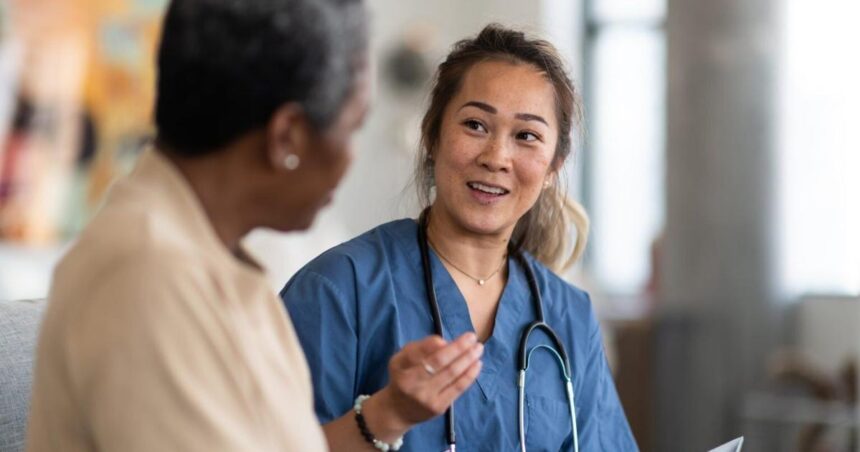I stepped through the doors of Georgina’s LINK community hub on a brisk Tuesday evening, where small clusters of residents were already gathering, their conversations creating a gentle hum in the space. Some clutched coffee cups, others flipped through pamphlets on diabetes management. All had come seeking something increasingly precious in our fragmented healthcare system: accessible information delivered face-to-face by professionals who understand their community.
“We’ve been trying to navigate my mother’s care for months,” confided Sarah Wilkins, a Keswick resident who brought her 78-year-old mother to the inaugural session of the Georgina Health and Wellness Education Series. “Having experts actually come to our town instead of us driving to Newmarket or Toronto—it means everything.”
The new monthly series, a collaboration between the Southlake Community Ontario Health Team and the Town of Georgina, represents a shift in how rural communities access health information. Launched this spring, the initiative brings healthcare professionals directly to Georgina residents, offering free educational sessions on pressing health concerns.
For many in this lakeside community north of Toronto, healthcare access has long meant lengthy drives and fragmented services. The geographic isolation that makes Georgina’s beaches and forests so appealing also creates barriers to consistent care and health literacy.
Dr. Helena Jaczek, family physician and public health specialist with the Southlake Community Ontario Health Team, explains the initiative’s origins: “When we analyzed community health data, we discovered residents in Georgina’s more remote areas were accessing preventative care at lower rates than the regional average. Rather than expecting everyone to overcome transportation barriers, we decided to bring the information directly to them.”
The education series covers topics identified through community consultations, including diabetes management, mental health resources, senior care options, and navigating Ontario’s healthcare system. Sessions rotate between different locations throughout Georgina, including the LINK, local libraries, and community centers in smaller hamlets like Pefferlaw.
What makes this initiative distinctive isn’t just its rural focus but its integration of clinical expertise with community knowledge. Each session pairs healthcare professionals with local advocates and service providers, creating a more holistic approach.
“Medical information without local context doesn’t serve our residents,” explains Catherine Cook, Georgina’s recreation and culture manager. “Someone might understand they need to exercise more for their heart health, but if they don’t know about our seniors’ walking programs or which trails are accessible year-round, that knowledge doesn’t translate to action.”
The series also represents a practical implementation of Ontario’s health team model, which aims to better coordinate care across different providers and settings. While systemic healthcare integration faces numerous challenges, community-based education offers an immediate benefit.
“Ontario Health Teams are meant to break down silos between hospitals, primary care, and community services,” notes Dr. Jaczek. “These educational sessions give residents a chance to meet providers from different parts of the system and learn how to navigate between services more effectively.”
The first session, focused on heart health and stroke prevention, drew over forty residents ranging from young parents to seniors. Notably, attendees included several individuals who acknowledged they don’t have a family doctor—a growing reality across Ontario where physician shortages leave many relying on walk-in clinics or emergency departments for routine care.
For these unattached patients, the education series provides rare direct access to healthcare expertise. Though not a substitute for ongoing primary care, it offers a chance to ask questions and receive guidance without the pressure of a clinical visit.
Attendee Michael Cheng, who moved to Georgina during the pandemic, expressed relief at finding the resource. “I’ve been on waiting lists for a family doctor for almost two years now. Tonight I learned about a telehealth program I qualify for and a community blood pressure monitoring initiative I never knew existed.”
According to Statistics Canada data, approximately 14.5 percent of Ontario residents lack regular access to primary care providers, with rates typically higher in rural communities like Georgina. This gap in consistent care often leads to delayed diagnoses and complications from manageable conditions like hypertension and diabetes.
The education series attempts to address these gaps by connecting residents to alternative resources and empowering them to advocate for themselves within the healthcare system. Sessions include practical components like instruction on using patient portals, understanding test results, and preparing questions for medical appointments.
Community response has been enthusiastic enough that organizers have already expanded the originally planned six-month pilot to a year-round program. Upcoming sessions will focus on mental health resources, managing chronic pain, and navigating care options for seniors.
The Georgina initiative reflects a broader trend across Canada’s rural communities, where innovative partnerships are emerging to address healthcare disparities. Similar programs in British Columbia’s Gulf Islands and Nova Scotia’s South Shore have shown promising results in improving health literacy and preventative care utilization.
As the evening session concluded, I watched residents lingering to speak one-on-one with presenters, collecting business cards and scheduling follow-ups. The conversations continuing into the parking lot spoke to something beyond information exchange—a sense of being valued enough that healthcare would come to them, rather than the other way around.
“Sometimes the most important health intervention is simply showing up where people already are,” reflected Cook as we watched the last participants depart. “Georgina residents deserve the same quality of health information and resources as anyone else, even if we’re a little farther from the region’s medical centers.”
For residents interested in attending future sessions, information is available through the Town of Georgina’s recreation guide and website, with registration open to all community members regardless of age or health status.






